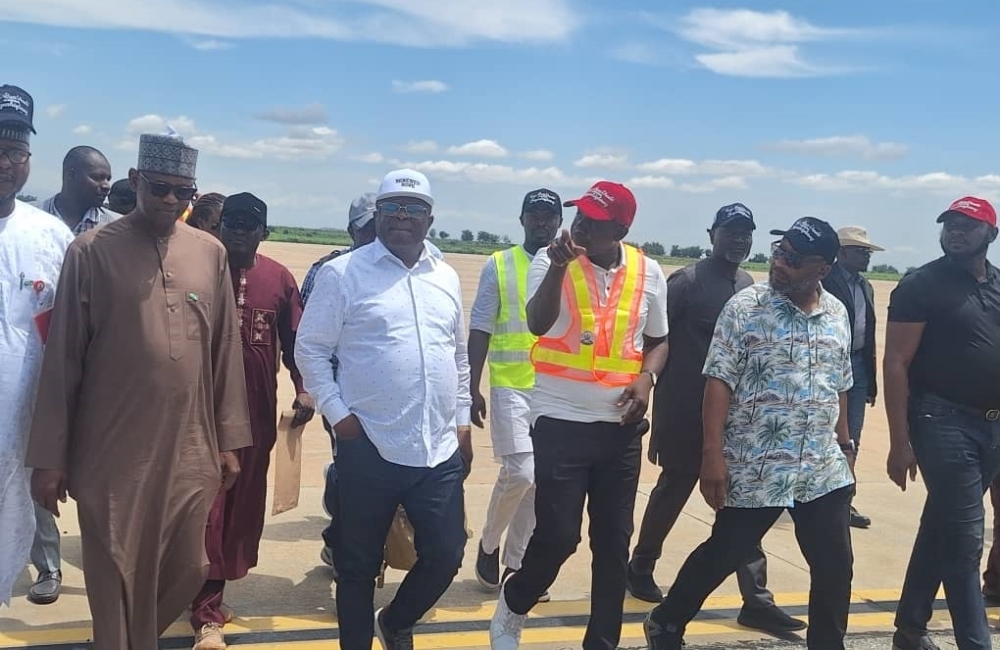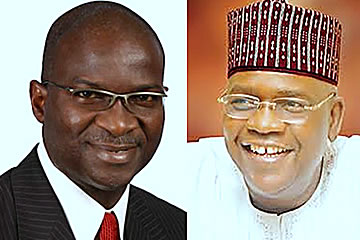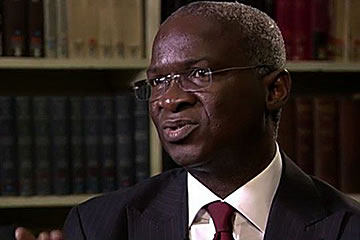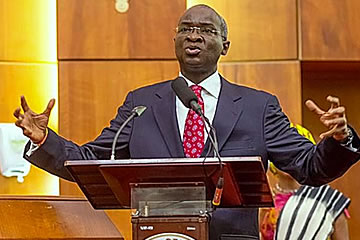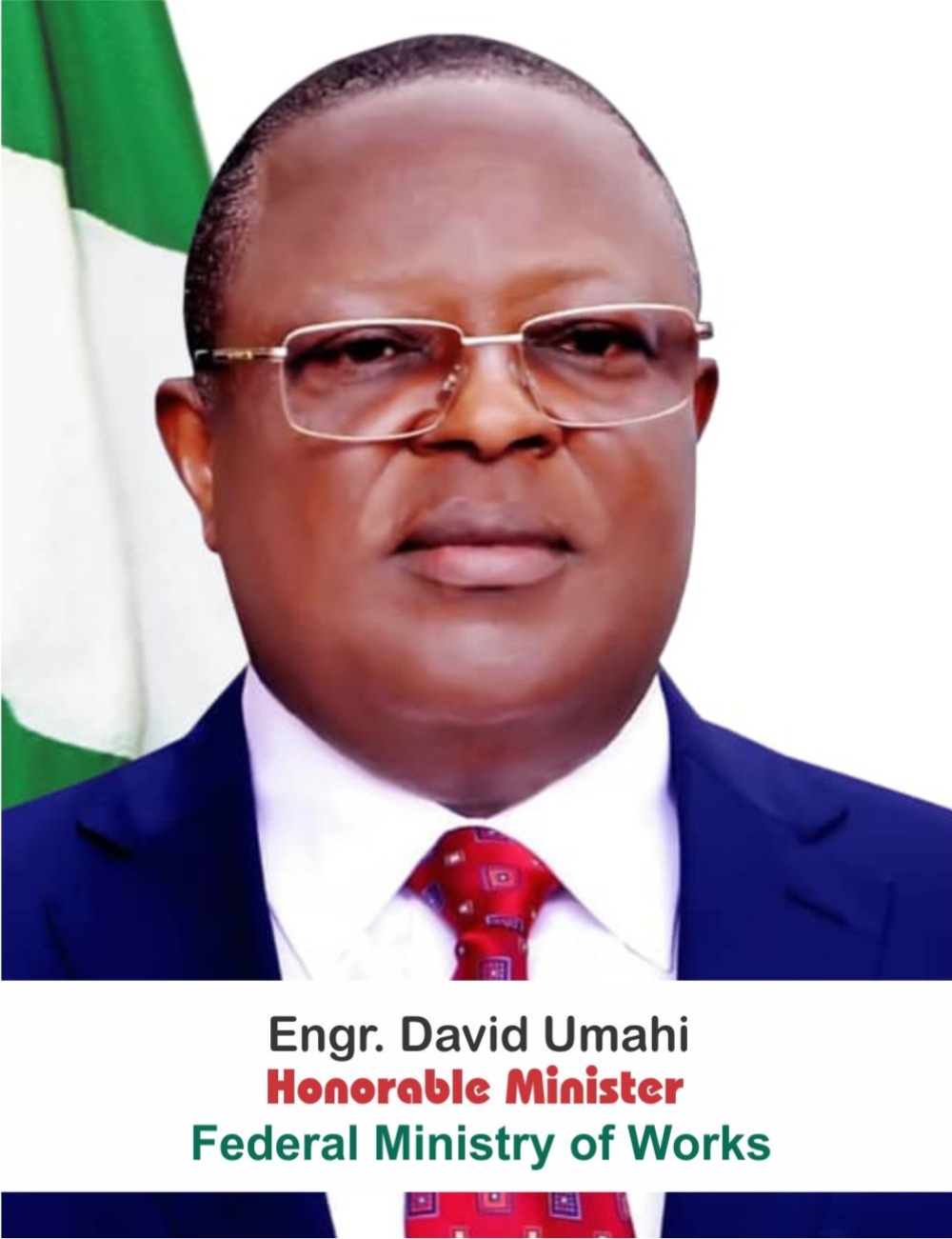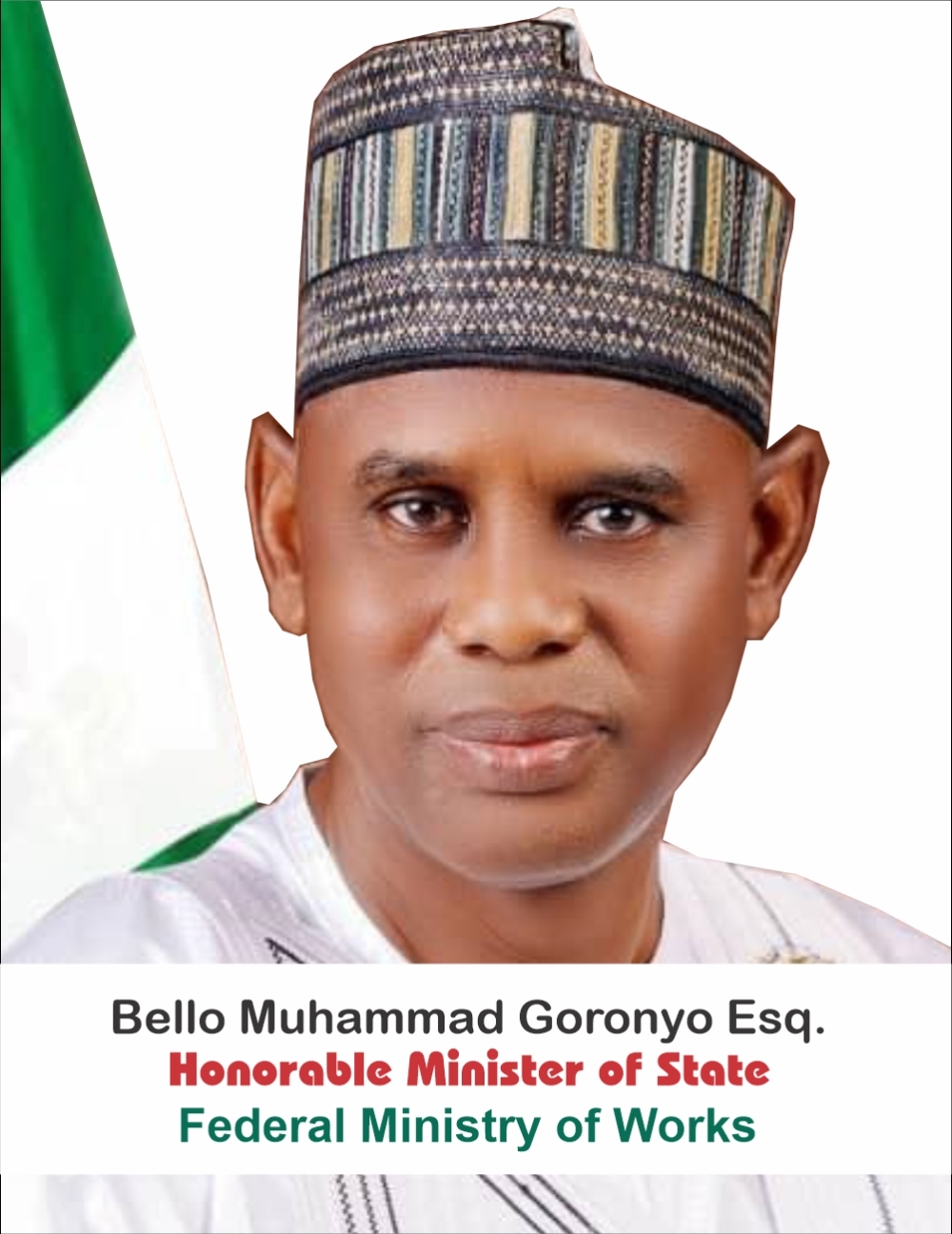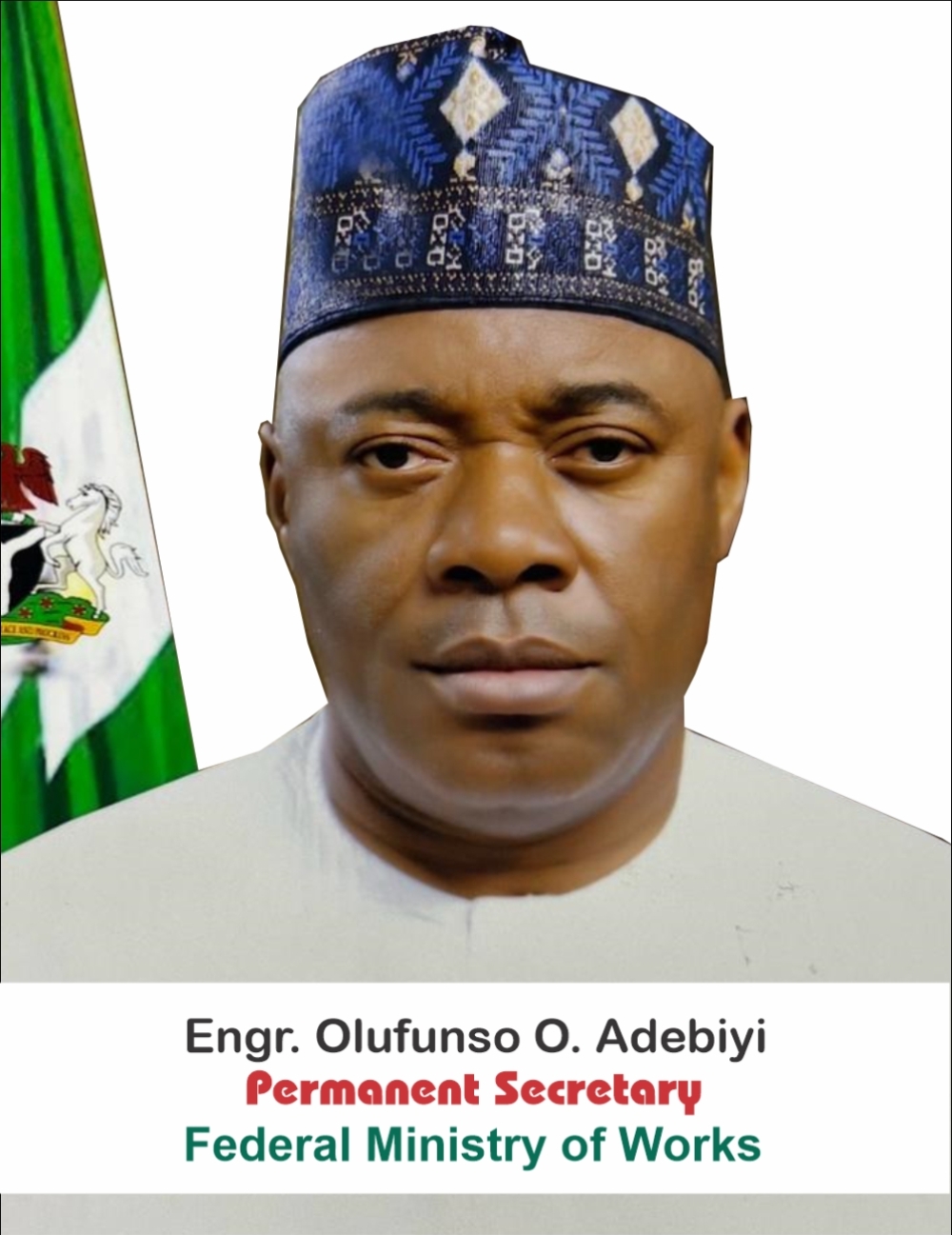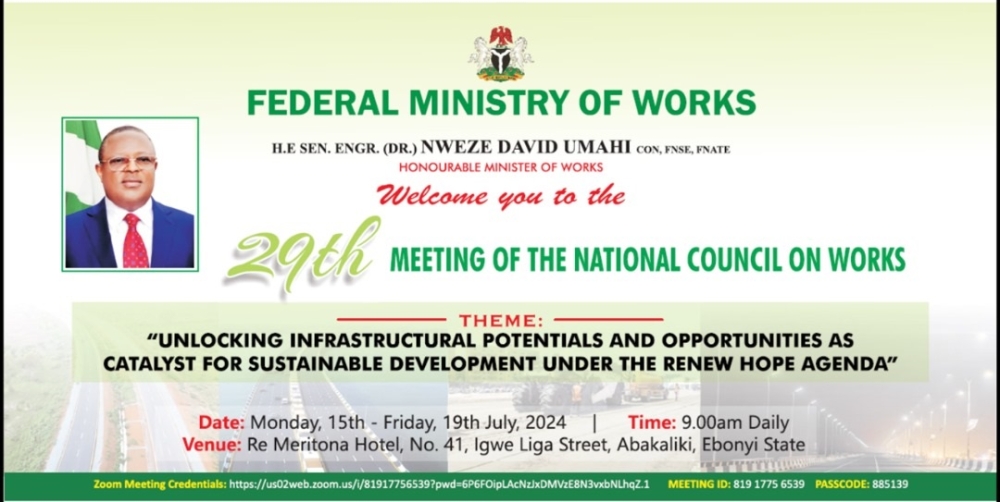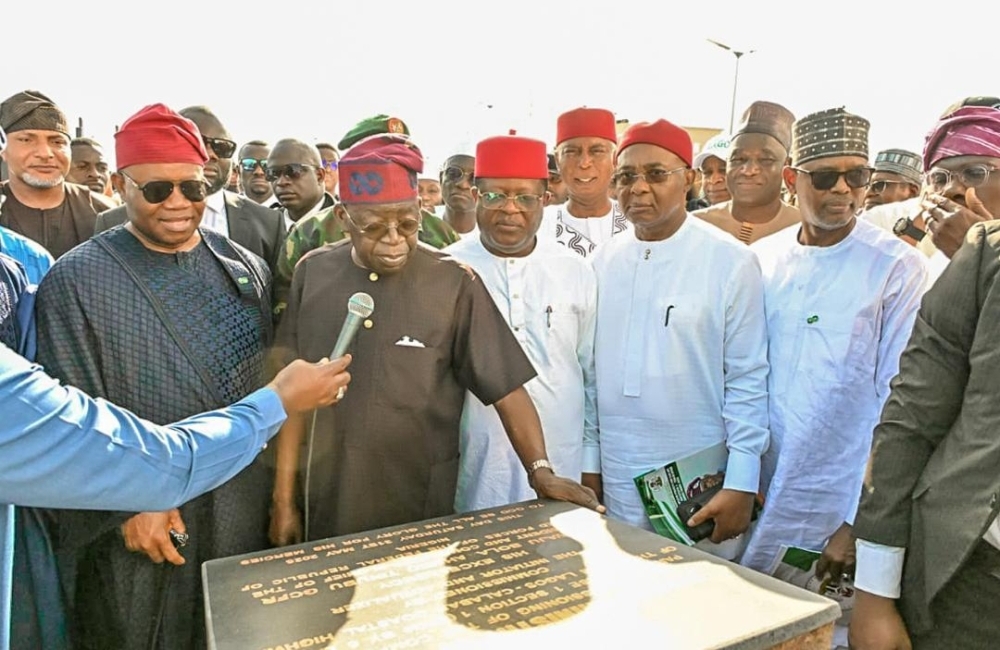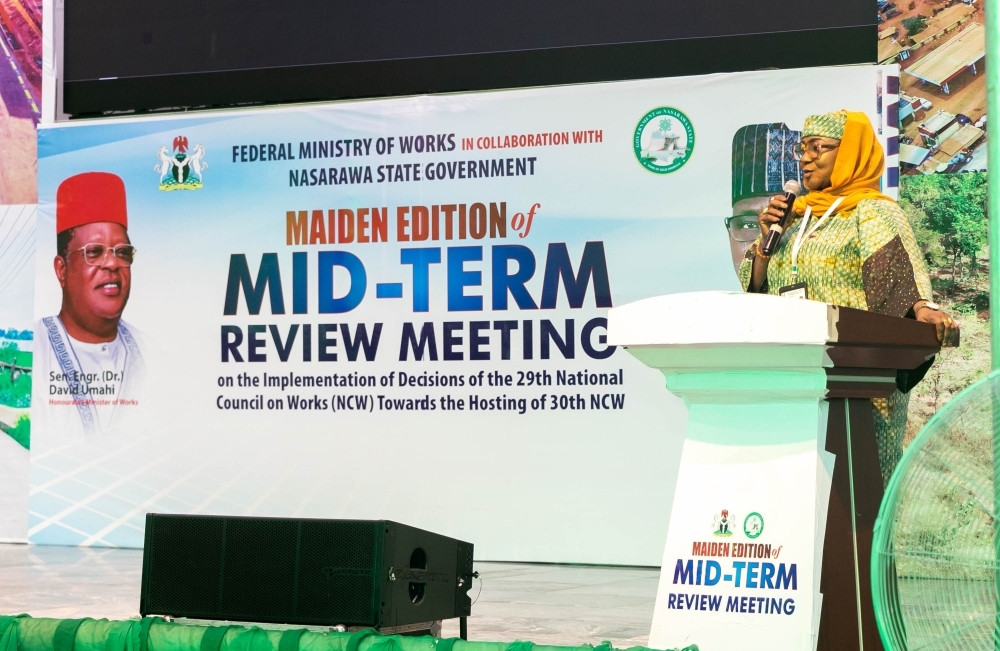BRF: RESOLUTELY FOCUSSED AT 54 BY HAKEEM BELLO
May 2017 was appraisal time of the mid term of the administration of President Muhammadu Buhari in office.
Expectedly, much attention was on the Ministry of Power, Works and Housing, as it controls the fulcrum, which the country’s development revolves around. While Power plays a vital role in its industrial development, Works (roads, bridges) facilitates the transaction of business and social activities across its boundaries and cultures while Housing gives both stability and security to its human resource.
There were, and there will still continue to be truths, half-truths, and outright falsehoods. Indeed, in a clime where some people earn political patronage or keep their positions by how savagely they can disparage the subject of this discourse, certain outlets and their tendencies have simply become predictable.
However, as C.P Scott wrote in 1921, “comments are free, but facts are sacred.” The fact is that with a reputation built not on quick fixes but enduring solutions and far sightedness, Mr Babatunde Raji Fashola SAN remains resolutely focused. As he turns 54 today, it would still be in tune with the spirit of mid term assessment to look at what BRF has been doing with the tax payers time as a public officer.
Flag-off
The stewardship of Mr Fashola at the helm of the Ministry of Power, Works and Housing started in November 2015 when President Buhari inaugurated his Cabinet. Shortly after, the Minister held a media briefing where he outlined the Ministry’s focus in the three sectors. In Power, the promise was to increase power availability (Incremental Power), then advance it to steady supply and ultimately to uninterrupted supply nationwide. This he followed up with a Roadmap clearly setting out how he and his team intend to achieve this. In Works (Infrastructure), the promise was to increase road connectivity, decrease journey time and improve journey experience by completing on going projects; and in Housing, it was to build acceptable and affordable houses for the citizenry. In summary: galvanize the economy through infrastructure development.
Power: Plants and all
Fact: at inception, the administration inherited 2,690 MW of power and only oversight through regulatory agencies instituted by law and on transmission of electricity which it is carrying out through the Transmission Company of Nigeria (TCN); the 26 power plants (23 gas and three hydro) having been privatized.
What’s being done to achieve Incremental Power? With provision of funds and determination to fulfill the promises made at the media briefing on Incremental Power, resuscitation of the 29 MW Dadin Kowa Hydro-Power plant in Gombe State should be completed in November, going by the assurance given to the Minister in March this year, by the project manager. The 132KV lines to evacuate the power are in place. The 40 MW Gurara Power Station is expected to finish in the first quarter of next year and with the arrival of its standardization equipment, the 10MW Katsina Wind Mill is expected to finish before quarter two. The diesel and gas dual fired 215MW power plant in Kaduna is also expected to finish this year. There is also another Power Emergency Project that President Buhari approved for General Electric to give 240MW of power in Afam, Rivers State. It is also expected to finish this year. The 40 MW Kashimbilla Hydro Power Plant, in Taraba State, has been revived and now 99% completed . The works on the evacuation of power including transmission lines , switchyards and substations from the power plant to Takum , Wukari and the existing substation in Yandev is expected to be completed by the second quarter of 2018 subject to availability of funds.
Work has resumed on the 700MW Zungeru hydroelectric power plant in Niger State, which was stalled by litigation for over three years .The nation moves closer to achieving power security with more alternatives to Gas fired plants. Work on the 450MW Azura Power Plant in Benin, was also stalled because the approvals and agreements required by the private companies to source for funds could not be signed for more than one year. President Buhari finally signed the required on assumption of office and this enabled the investors to commence construction. So also, the Mambilla hydro plant, which had been on the drawing board long before the coming of this Government. The Minister in an interview with the Daily Trust last week explained that significant progress had been made in terms of project planning by working with various stakeholders and with a “No Objection “ certificate secured from the Bureau of Public Procurement on Monday 19th June ,work is set to commence on this long drawn yet all important project..
Energy Mix
Against the backdrop of the country’s vulnerability on account of its over reliance on a single fuel source –Gas- for Power, perhaps, one of the best things that has happened to the Power Sector since the present administration took office is the development of an Energy Mix.
Developed by the Ministry and unveiled at the National Council on Power Meeting held in Kaduna in July last year, the initiative has since set off a chain of activities on the diversification of the power generation. For example, the Nigerian Bulk Electricity Trading Plc (NBET) on behalf of the Federal Government in July last year signed Power Purchase Agreements with 14 solar power developers to produce over 1,000MW of solar power. As a follow-up, two of the developers, Afrinegia Nigeria Limited and CT Cosmos Nigeria Limited, on 13th April signed the Put/Call Option Agreements (PCOA). Co-ordinated by NBET, the PCOA is a key aspect of the PPA to deal with any premature termination. Afrinegia Nigeria Limited plans to deliver 50MW while CT Cosmos will deliver 70MW to the grid. There is also a plan for a new solar farm in Jigawa State, which is under procurement and planning. It is expected to add a minimum of another 1,000MW to the grid. In conjunction with other stakeholders discussions are also in progress with two coal developers who will add significant coal power to the grid.
Individuals and businesses in the country are also being encouraged to partake in investing in small captive solar initiatives. The objective is to create an Energy Security for the country by diversifying the energy source. In addition, the policy encourages the siting of power plants close to the source of energy. At the Council meeting in Kaduna, a target of 2030 was set for the achievement of 55 per cent gas,16 per cent, solar, 15 per cent, large hydro project; 4 per cent, wind; 3 per cent, biomass and 3 per cent, coal. Government has led from the front in this aspect with the completion of the 1.2MW Clean Energy Photovoltaic System, a solar energy plant and first of its kind in Nigeria, to power the Lower Usman Dam power treatment plant, the main source of potable water to the Federal Capital Territory. Built in collaboration with the Japanese International Cooperation Agency (JICA), the project’s first phase, commissioned in August 2016, is producing 1.2MW of solar energy.
Policy actions
From the outset, Fashola, a firm believer in the sanctity of contracts was not persuaded by call in some quarters for the outright cancellation of the privatization of the power sector. Rather, he believes that the process and the sector should be methodically reviewed and reformed. This is the sum and substance of the Power Sector Reform Programme which focuses on introducing reforms, reducing losses in the distribution companies, enhancing the sector’s financial viability, increasing access to electricity services, and mobilizing private sector investment. With support secured from the Federal Executive Council, members of the National Assembly heading the Power Committees and the World Bank Group, the Programme is already being implemented, though many are still awaiting a “formal” launch. These policies include the inauguration of Commissioners for the National Electricity Regulation Commission (NERC) and the Rural Electrification Agency Board on the governance side as well as the NBET’s N701 billion two-year Payment Assurance Guarantee approved to ensure that all those who generate power to the grid are paid . The Minister has, in exercise of his powers under Section 27 of the Electric Power Sector Reform Act 2005 directed NERC to permit four categories of customers to buy power directly from a licensee other than their electricity distribution companies, once they are dissatisfied with the performance of the latter. As Fashola puts it, “ it is like going to Nestle to get your products directly instead of waiting for the distributor.” (Please visit www.nercng.org, on “Eligibility in the Power Sector”.)
Boosting transmission
In terms of transmission capacity over which the public continues to express much anxiety, although the Ministry inherited over 100 uncompleted transmission projects, TCN is expanding and maintaining the transmission lines and completing projects started before the privatization. It has paid contractors and obtained the necessary approvals for them to return to work. The projects include the Irrua and Okada Transmission Projects, both in Edo State; Itu-Calabar Transmission Line, Ikot Ekpene-Calabar, Ikot Ekpene-Alaoji, and Ikot-Ekpene-Ugwuaji Transmission Lines and the Damboa Transmission Power in Borno State which was stopped at the peak of insurgency.
Also shipping companies and warehouse owners, who kept custody of containers abandoned by unpaid contractors for almost a decade, have begun releasing them. In fact, the first batch of over 387 containers was released to the contractors due provisions made in the 2016 budget.
There is also a five-year plan to boost power transmission capacity to 20,000MW beginning from 5,500MW to 10,000MW in the next three years. The plan targets transmission capacity of 8,200MW by 2018 and 10,000MW by 2019. To achieve this, the Federal Government is working on actual numbers of transmission towers that would take the nation from 7,000MW to 20,000MW in each growth plan; how many kilometers of cables, wires, breakers and tons of steel would be required in each stage as well as securing Right of Ways, settle compensation issues and every other issue that could possibly impede the implementation plan. Meanwhile, 59 expansion projects are currently being worked on across the country. The various transmission projects under the National Integrated Power Project (NIPP) are also being completed.
As Fashola promised during the first anniversary of the administration, attention has recently been directed at rolling out the Rural Electrification Implementation Programme “to improve access to power for rural communities”. On 2 May, , the Minister inaugurated the Board of the Rural Electrification Agency (REA) and charged it with increasing access to electricity in the shortest possible time for the millions of Nigerian rural communities and villages as well as some urban cities yet to access electricity from the national grid. These communities lack access partly because the 330/132 KV and 132/33 KV lines (popularly called the high-tension wires), which the connection is often made through, run over long distances; the high cost of extending the lines to these communities, most of which are sparsely populated, and tariff being fixed, investment in them was not attractive. The Electricity Sector Reform Act, passed in 2005, set up the REA and mandated that the Implementation plan for rural electrification should be prepared within a year for Presidential Approval. That approval came 11 years late, with President Buhari’s stroke of the pen. The implementation Plan which recommends a combination of grid extension and development of independent grids, using new technology such as solar, to make these communities, see light, so to speak, had been anchored on some existing projects such as the completion of over 2,000 uncompleted or abandoned grid extension projects which started life in 1999 as constituency projects.
Government intends to resuscitate six of the over 50 small hydro dams across the country and activate their power component, which, the Minister says had received Federal Executive Council’s approval, had also been advertised, and had received Expressions of Interest which were now being evaluated. The third anchor is the development of Independent Power Plants (IPPs) in 37 federal universities and seven teaching hospitals in rural areas and the building of independent power grids from there to connect adjoining rural and unconnected communities. The Rural Electrification Agency (REA) signed the Memorandum of Understanding (MOU) on Tuesday, 20th June 2017 with eight (8) Federal Universities and one Teaching Hospital for the first phase of the Federal Government’s Energizing Education Programme (EEP) which is also being used as anchor for the electrification of rural communities in the areas where the tertiary institutions are located.
Safe, smooth roads
It was in June 2016 that contractors were mobilized to return to sites they had abandoned for over two years because of non-payment of contract fees. Today, work is going on in all states of the Federation in terms of road rehabilitation and reconstruction. , Between February and April the Minister had undertaken an inspection tour of these road projects in 34 States across the six geopolitical zones of the country. In the South-East, which was the first port of call, at least 600 kilometers of roads are under rehabilitation/ construction across the zone’s five states. They include the Enugu-Aba- Port Harcourt Expressway, which runs through Anambra, Enugu, Imo, Abia and Ebonyi States covering about 31 roads as well as construction of pedestrian bridges and flyovers, traffic signs and lights; the outstanding section of Onitsha-Enugu Road being handled by Reynolds Construction Company (RCC); Umana-Ndiagu-Adaebele-Udi Road in Ndiagu, Nsukka—Oboloafor -Ihamufu Road, Ninth Mile-Nsukka-Oboloafor Road, among others in Enugu State;Ohafia-Oso Road (In Ebonyi and Abia States: 11.7 km), Nnenwe-Uduma-Uburu Road, Section1 (14 km in Enugu/Ebonyi), rehabilitation of Abakaliki-Afikpo Road; Section 1 (20.5 km), rehabilitation of Abakaliki-Afikpo Road Section 11 (19.5 km) and Construction of Obubra-Ikwo-Onueke-Nkomoro-Agba-Ezekuna-Ogboji-Nara-Cross River Border Road (7 km), among others in Ebonyi; Aba-Port Harcourt Dual Carriageway (section 11), Umuahia Tower-Aba Township Rail/Road Bridge Crossing (56.1Km), rehabilitation of Lokpanta-Umuahia Tower (59.5km) and rehabilitation of Calabar-Itu-Ikot-Ekpene-Aba-Owerri Section 111: Ikot-Ekpene-Ikot Umuoessien-Aba Road in Abia/Akwa-Ibom (43.2km), among others in Ebonyi while in Imo State, federal road projects currently on-going include the Owerri-Umuahia Road, Sections 1,11 and 111, the Ikot-Ekpene Border: Aba-Owerri Dualisation Road Section 1, Phase 1 (11.26km), Mbaise-Ngwa Road Ohase 1 (14 km), Amanwaozuzu-Uzoagba-Eziama-Orie-Amakohia Road (10km) and Oba-Nnewi-Okigwe Road Section 11, among others. On the Second Niger Bridge in Onitsha, Anambra State, the contractor is working to re-mobilize to site, having stopped due to lack of payment.
In the North East, six federal roads are, among others, undergoing reconstruction or rehabilitation in Bauchi State, including the Suare-Azare, Azare-Potiskum Road, Ningi-Ajalokuna-Fudulamata Road, Jukun-Zaero Road and Zaero-Bassa-Ningi Road. In Gombe State, the two on-going road projects are the Gombe-Bauchi Federal Highway and the Gombe –Numan-Yola Road while in Taraba, Yobe and Maiduguri, the major roads under construction include the Kano-Maiduguri Dual Carriageway that traverses three States. In the South-West the on-going road projects include the Ogbomosho-Oshogbo Road that connects Oyo State with neighbouring Osun, the Oyo-Ogbomosho Road that connects the State through to Kwara, the Lagos-Ibadan Expressway that connects Ibadan to Ogun and to Lagos and Lagos-Shagamu Expressway among others . Similarly, there are projects going on in the North-Central, the North- West and the South –South. When Fashola says the Federal Government is present in all States of the Federation, he means it because he has been on the roads to see the projects.
Affordable, Acceptable houses
In the Housing Sector, construction of houses under the National Housing Programme has commenced in 33 states, which have allocated land for the purpose. And in line with the decision to build houses which will suit the climatic, socio-cultural and land use peculiarities of the people, the designs of one, two and three-bedroom bungalows have been adopted for the Northern states while the designs of one, two and three bedroom blocks of flats have been adopted for Southern states. In addition, the Ministry has also identified inputs such as doors, windows, tiles, paint and roofing materials that could be made locally and as earlier resolved by the Minister that only Made-in-Nigeria inputs will be used unless there is no local production capacity. To provide investment information for local manufacturers, the ministry has done some inventory of quantities of materials needed in the project. Based on that inventory, 22,288 doors; 27,849 windows; 3,502 water cisterns; 3,502 wash hand basins; 2,830 kitchen sinks; 261,299 sq. metres of floor tiles; 178, 680 Sq. metres of wall tiles; 561,119 litres of paints; and 342,960 Sq. metres of roofing materials would be needed in the first phase of construction which will also require 413,000 man days of skilled labour, and 440,000 man days of unskilled labour. This, of course, means continuous job for local manufacturers and artisans.
Job creation
The whole essence of the on-going infrastructure renewal, whether in the Power, Works or Housing sector, is, first, to stimulate jobs. This purpose has been achieved to a very significant extent. As announced by the Minister recently at an account of stewardship rendering Town Hall Meeting, the Ministry generated 193,469 jobs (9,000 direct and 60,000 indirect in Power; 17,749 direct and 52,000 indirect in Works and 13,680 direct and 41,040 indirect in Housing) while also empowering 542 local contractors during the 2016 budget year.
During his tour, the Minister engaged with these young men and women, working to deliver on the contracts, delivering service which will touch the lives of the greatest number of the people and in so doing restore the country’s economy to the path of growth and prosperity. On each of the stops Fashola would also dutifully deliver the message of his principal, President Muhammadu Buhari’s gratitude and commendation to the teeming young men and women for working hard to rebuild Nigeria and contributing to the economic recovery from a recession spun by several years of profligacy.
Incredible strength, work ethic
Whether sitting through grueling meetings to make peace and get projects or contracts (which had stalled for years before his assumption of office), moving from one power plant or Transmission station to chair going again, chairing the monthly meetings of the Power Sector Operators, in different cities and states or enduring hours of bus travelling by road to inspect roads, housing or power projects under his watch, Fashola displays a remarkable strength of character and intellect as well as energy. Often asked how he manages his naturally crowded schedule, the Minister would respond to the effect that he takes himself and any assignment he accepts seriously. Now, you can’t be focused without being serious and so l am closing by wishing my Boss many more years of focused service to our fatherland in sterling health. Happy Birthday BRF!
...
